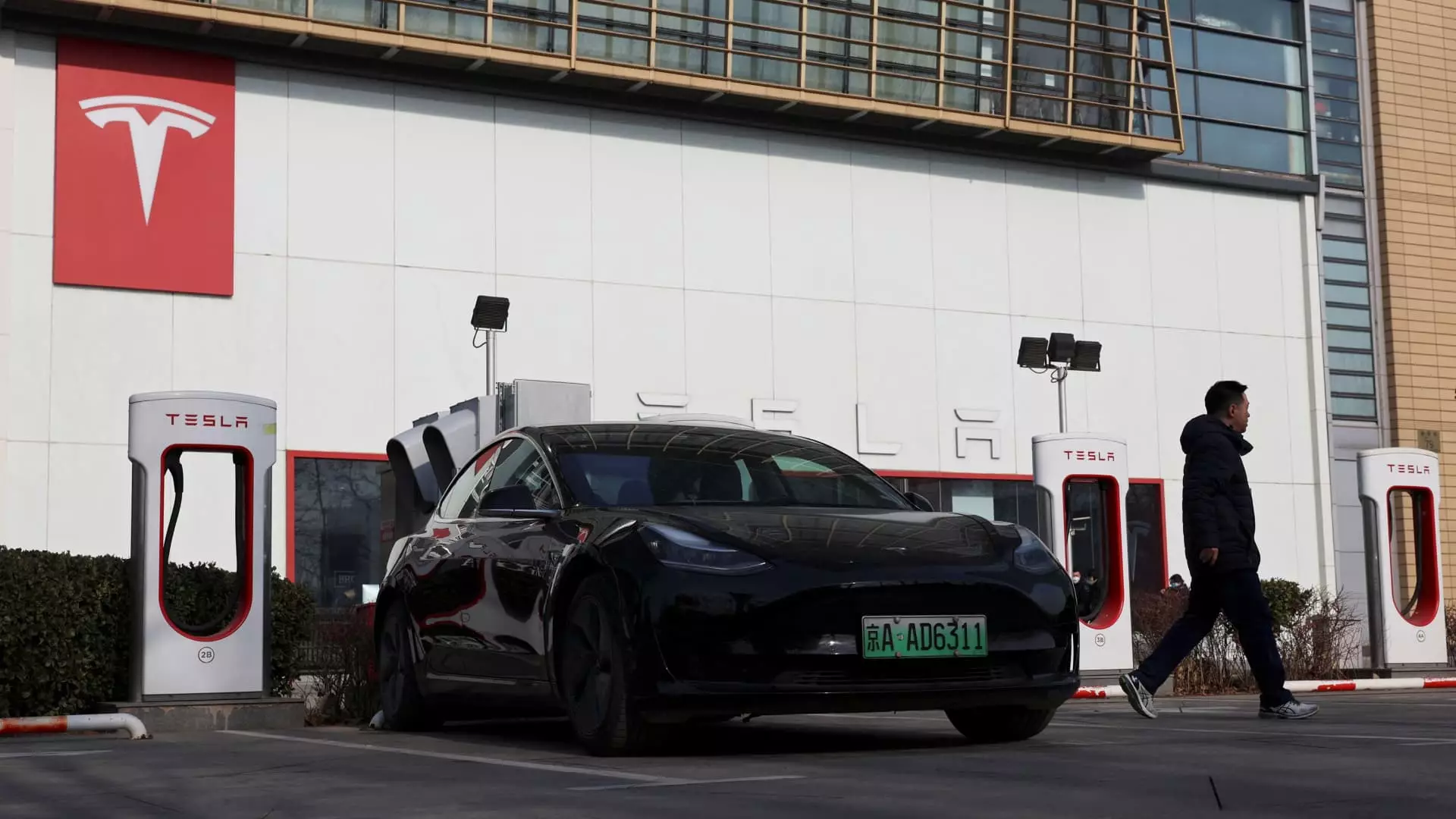The automotive industry is undergoing a profound transformation, particularly in China, the world’s largest car market. The dramatic shift toward electric vehicles (EVs) indicates an ongoing evolution that favors local manufacturers, especially in the wake of diminished influence from traditional foreign automotive giants. The narrative for 2024 appears to show an exodus of foreign brands, while local players, particularly electric vehicle manufacturers such as BYD and Geely, appear poised to fortify their positions in 2025 and beyond.
BYD has emerged as a true powerhouse in the Chinese automotive landscape, taking a commanding 16% of the market as of October 2024 — a significant increase from 12% in the previous year. This growth trajectory has not gone unnoticed, with investment analysts at Nomura touting BYD as their top recommendation for investment in the sector. The automaker has performed exceptionally well, even surpassing Tesla in terms of revenue for the first time in the third quarter of this year. With continued advancements in production, BYD produced more vehicles than Tesla for the second consecutive year.
While it remains true that Tesla still leads in battery-only vehicle sales, it is worth noting that BYD’s hybrid models contribute significantly to its overall sales figures. Tesla’s premium pricing stands in sharp contrast to BYD’s more affordable offerings, allowing the latter to reach a broader consumer base. Moreover, in November 2024, while Tesla experienced a 4.3% decline in sales, BYD’s sales soared by an impressive 67%, illustrating the stark divergence in market performance between these competitors.
As domestic players flourish, foreign automotive manufacturers are facing trials in the Chinese market. General Motors announced a substantial restructuring plan involving its joint venture with SAIC Motor, revealing that it expects to incur billions of dollars in costs. The strategic overhaul includes plant closures and a reevaluation of its operational scope in China, where its joint venture, SAIC GM Wuling, controls merely 3% of the total automotive market as of October, and 6% of the new energy vehicle segment.
This grim outlook for foreign brands highlights a larger trend wherein international car makers struggle to compete with local companies that have adapted more quickly to consumer preferences for electric and hybrid vehicles. As Chinese consumers gravitate toward these environmentally sustainable options, foreign automakers must contend with intense competition and increasingly limited market share.
Despite the challenges facing the foreign brands, domestic companies such as Geely are on a growth path. Currently holding an 8% share of the Chinese automotive market, analysts project that Geely will experience a robust 22% increase in sales next year, reaching around 2.6 million units. The company is set to benefit from a surge in electric vehicle adoption, with a projected 40% penetration expected in its product lineup. Moreover, Geely’s ownership of various automotive brands, including Volvo and the emerging Zeekr, showcases its diversified approach to compete in the intensive EV landscape.
In this context, new automotive enterprises also play a vital role in shaping the market. Companies like Yongda, which operates showrooms for several EV brands including Huawei’s Aito, indicate a shift in traditional automotive paradigms. Analysts suggest that sales of vehicles featuring Huawei’s automotive system could exceed 1 million units in the forthcoming year, marking a significant development in the convergence of technology and automotive frameworks.
Among the array of startups, Nio and Leapmotor attract particular attention due to their strategic approaches and efficient R&D expenditures. While Nio’s stock holds a neutral rating from some analysts, it has plans to enhance its financial sustainability by optimizing R&D spending and boosting vehicle deliveries significantly. Reports suggest that Nio aims to achieve breakeven by 2026—an ambition underscored by the planned launch of new SUVs that are anticipated to drive sales volume upward significantly.
Leapmotor, in comparison, has demonstrated its frugality in research and development, spending more efficiently than its competitors, which is a substantial advantage in this competitive market. This focus on cost-effective innovation may well foster a higher market share as consumer demand continues to lean toward affordable electric vehicles.
As we enter an era defined by electric mobility, the landscape will likely remain dominated by local Chinese firms poised not only to retain but to expand their influence. For consumers, the implications are clear: the opportunity exists to embrace more diverse and competitively priced offerings, driven by innovation and evolving consumer preferences as the automotive world adjusts to meet the demands of a greener future.


Leave a Reply